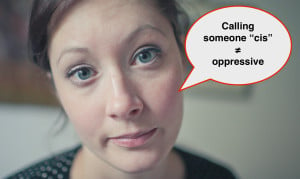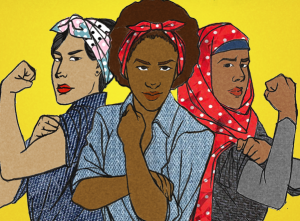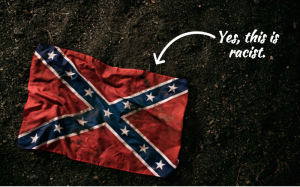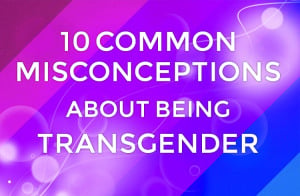
An elderly person covers half their face, appearing upset and defeated.
My dad used to tell me that when he came to America — a colonizing nation-state that still sits on stolen territories from many Indigenous nations — as a refugee, he had to carry a dictionary around with him everywhere he went.
A life without language, without the ability to name things, to address people, to describe how you’re feeling, to ask for what you need, is a horror that I can barely imagine.
But that is the reality for people who immigrate to the occupied territories that people call “the United States,” often because the American government is contributing to some kind of terror in their homelands.
When immigrants come to “America,” they are routinely stripped of their language. They are expected to learn English immediately and flawlessly, because the kind of people that Americans consider respectable talk and look like middle-class white people.
We are told that there is one correct form of English, and deviating from grammar and pronunciation rules associates us with the working class. Not only is this classist, but it fortifies the idea that English has a “proper” form — even though every variation of English has been constructed.
The kind of English that is privileged in job interviews, for instance, was made up like every other kind of English; it has no special value. But we’ve been taught that the version of English that middle-class white people speak is “correct.”
Immigrants of color are especially made to feel ashamed of their own languages, because their languages remind them that they are not white. Their languages remind them that who they are and where they come from will always taint them in the eyes of America.
There exists a double standard: Americans love it when a French person can speak both French and English, even with an accent, but they don’t give a damn about Vietnamese people who can speak both Vietnamese and English.
They create movies in which a white woman swoons over a white dude with a French accent. But they create entire comedic routines based off of women who work in nail salons, my mother being one of them. Even though these women endure this labor and inhale toxic chemicals to make everyone feel beautiful, they are still seen as lowly women undeserving of basic respect.
These situations arise because the world is dominated by the English language, and this domination shows up as language injustice. Here are three ways language injustice harms marginalized people.
1. Immigrants of Color and Indigenous People Encounter Physical Violence and Generations of Abuse
When immigrants speak their language around white people, they are told to “go back to their country” — as if white people aren’t colonizers who came from Europe to brutalize Indigenous peoples already living on Turtle Island, the original name for the North American continent. I, myself, have been told to “go back to Asia” — because Asia is all the same anyway, according to racists.
Sometimes, the oppression that comes from language injustice is in the form of physical violence. Asma Mohamed Jama was brutally attacked in an Applebee’s by a white woman for speaking Swahili — she bore the brunt of being both Black and Muslim. An elderly Chinese man in New York was also left with a bloody face, but in his case, the police were the perpetrators.
The imposition of the English language upon immigrants of color, through physical violence and otherwise, is one of the key ways that they are conditioned to look, act, and even think like white people, which is how we become tools of white supremacy.
We slowly have to assimilate for small scraps of safety.
In American history, Indigenous peoples have been forced to learn English through violence. Boarding schools, for example, were places where generations of children from various Indigenous nations were met with physical and sexual abuse.
Language injustice is thus intimately tied with colonialism — it is enacted through the colonization of land and the conditioning of bodies and minds.
2. English Controls How We Think
Languages come with their own unique cultural norms and methods of communication. This is why it can be hard to translate many things from one language to another — it’s because you’re placing an idea in an entirely different context, with different rules.
English, as a colonizing language, is of course meant to promote the gender binary, for example. In other languages, binary pronouns may not exist.
The rules of English are based on a rigid concept of gender as only male-and-female, which align with the cultural norms that were brought from Europe. This is why many people push back against gender pronouns that non-binary people use — like they/them/theirs or zie/hir/hirs.
English is also one of the primary languages of academia, one of the institutions responsible for producing oppressive ideas or reinforcing oppressive structures. Sometimes, English is even the primary language in so-called progressive spaces, particularly in continents that dominate the world, like in North America and Europe.
One example of this is the use of the word “trans” to refer to identities not familiar to Euro-American societies. Most media outlets have referred to identities — such as that of the hijra of India, muxe of Mexico, nádleehí of the Navajo Nation, and sekrata of Madagascar — as “trans” in a poor attempt at translating these vastly different cultural contexts into a colonial context.
By calling these identities “trans,” English speakers are turning all of the unique histories and relationships that these communities have to gender into a monolith.
The spreading of the word “trans” may seem like progress. But in reality, it’s just another way that the English language and its understandings of gender are swallowing up all of these marginalized, non-white identities.
Trans, in fact, has become another colonial tool. It has become a way for imperialist media companies and corporations to spread the colonial understandings of gender, while hiding it under the guise of progress. People are weaponizing the language of transness as a way of making money off of people of color across the world, especially Black and Indigenous people.
That’s why it’s so important for social justice spaces to decenter the English language.
Because when we center the English language in spaces meant to abolish oppressive structures, we end up replicating those structures more than we realize. When English is the only language spoken, immigrants of color are left out. They do not have access to spaces that are meant to fight for them.
This is especially egregious when these immigrants are Black, Indigenous, or both, because they are already denied so much in the face of anti-Blackness and settler colonialism.
3. The Role of Settler Colonialism and Anti-Blackness
When people of color attempt to assimilate, we begin to enact the violences of white people.
People of color from immigrant families rarely interrogate their relationship to Indigenous territories — we may refuse to engage with how we can end occupation of such territories. We may advocate for anti-colonial struggles abroad, such as in Palestine, but we don’t realize that we are doing such advocacy from occupied territories ourselves.
What use is there in anti-colonial struggle if we can only bring ourselves to participate when there is considerable distance?
While there are specific forms of violence that white supremacy enacts against non-white bodies, there are also ways that non-Indigenous people, both white and non-white, commit violence by perpetuating settler colonialism.
Let’s shift our framing and understand that the land that we’re living on, right now, needs to be decolonized. Before New York City existed, the Lenape people were living here and building their own lives.
All settlers, and that includes immigrants of color, who live on Lenape territory benefit from the displacement and genocide of the Lenape people; Black Americans whose ancestors were stolen and enslaved, of course, are not to be considered settlers and occupy a different position within the settler state.
We can’t end language injustice in the context of colonialism without reflecting on how we are positioned, and how we can then make changes from our individual vantage points.
Unless we can do that, we are only perpetuating settler colonialism ourselves, which has a direct impact on language injustice. Prior to European contact, the Wukchumni people numbered in the thousands as part of the broader Yokuts nation. Today there are only about 200 people left among Wukchumni communities, and there is only one person left, named Marie Wilcox, who can speak the Wukchumni language.
While many immigrants have some level of access to family connections and networks to maintain their knowledge of their languages, Indigenous people are not afforded as many resources to preserve their language and heritage.
In addition to settler colonialism, many non-Black immigrants of color assimilate into white supremacy by participating in anti-Blackness. They may find ways to distance themselves from tropes that were made to hurt Black people.
In the context of language injustice, non-Black immigrants may claim that African American Vernacular English and other forms of English created by those of African descent, such as Jamaican patois and other English-based creole languages, are improper and strange. They may try to become white by setting themselves up as the opposite of the narrow stereotypes about how Black people talk.
By contrast, there are also non-Black people of color who may appropriate the different languages of Black communities without any consideration of how that may harm Black folks. In fact, many non-Black people of color use the n-word casually. They are always able to wield that word and perform their narrow idea of Blackness without bearing the brunt of anti-Black racism.
Meanwhile, Black people are forced to face the violence of anti-Blackness while also witnessing Black cultures being stolen and mocked.
So how do we counter language injustice? With its opposite: language justice.
What Is Language Justice?
Language justice was coined by the Highlander Research and Education Center. They hold Interpreting for Social Justice workshops, which are now being offered around the country. I was able to take mine at the Audre Lorde Project in New York.
It wasn’t until I took the workshop that I realized that many of the first-generation queer and trans people who were participants with me experienced so much unaddressed trauma around their family’s languages. Some of us shamed our parents for not speaking English as well as we did, for not assimilating as well as we did. The internalized oppression that comes from language injustice leads us to harm one another.
And that’s why healing is a crucial part of language justice.
1. Language Justice Can Heal Our Tongues, Our Bodies
Much of those who are in need of language have already had historical traumas passed down to us. Generations of violence at the hands of imperialism and white supremacy have been ingrained in our bodies, and the harm that has been inflicted upon our ancestors is also passed onto us through the conditions we’re forced to live under.
The oppression that we face in the present has roots in the centuries of oppression that our ancestors have faced.
Which means that when we were already in a place of harm before we learned to shame ourselves and our community members for not assimilating well enough.
When we heal, we are healing from the self-inflicted harm and from pain passed down through whole lineages of people. We remove shame from our tongues and bodies so that we can communicate in the way that we choose. So that we can do better to preserve our ties to our ancestors and take care of ourselves and each other.
2. Autonomy Is Vital to Our Well-Being
Another component of language justice is allowing people the autonomy to communicate in the language that they are most comfortable with — this autonomy happens through first through accessibility.
There are so many seemingly small, everyday encounters that are taken for granted by English speakers. Non-English speakers may not be able to communicate with a doctor or healer about their physical or mental health, testify for themselves when facing accusations, or ensure that people understand the boundaries they’ve set around their bodies.
Language is the basic tie between human beings and the world that surrounds them. Without the tool of language — and that doesn’t always mean spoken language — people have little control over how they’re treated by their environment and the people in it.
That’s why spaces need to be made not just accessible but also inviting for non-English speakers. Within social justice spaces, many of those who don’t speak English are unable to advocate for themselves; to share their narratives; to articulate their grief, rage, or joy; to build connections with other organizers; and to hold others accountable.
English speakers thus do not have those outside of the English-speaking paradigm to bring additional nuance, perspectives, and accountability. Without accountability, social justice spaces can become exactly like the ones deemed oppressive.
3. Resources Need to Be Redistributed
Language justice cannot be accomplished without resource redistribution, because there are always disparities in who is allowed resources.
Many of the interpreters who build bridges across different languages are underpaid or not paid at all. Interpreters that are involved in social justice work often come from marginalized backgrounds and work on marginalized topics — so there are often little funds in the first place.
But there needs to be an urgency placed on making sure that money is allocated to make spaces inviting to those who don’t speak English.
The interpreters, who do the vital work of decentering the English language, need to be well-compensated — because language justice and economic justice are bound together, as all forms of justice are.
Each of us are positioned at different points, and we have certain privileges based on where we’re positioned. If you have more resources than others, redistributing resources is easy — throw your money at those with less resources. We can easily use PayPal to send twenty or more dollars to an Indigenous femme, for example, because all settlers benefit from being on stolen land.
All settlers have an obligation to extend resources as reparations for all of the benefits that have arisen for settlers at the expense of Indigenous people. The genocide against Indigenous people is ongoing, which means that we need to urgently support Indigenous survival in tangible, immediate ways.
Resource redistribution is thus one of the most important parts of language justice. Because when people of color, especially Indigenous and Black people, who don’t speak English are left out of organizing spaces that already sit on occupied territories, that is far from anything we could call justice.
And there is no justice without language justice.
[do_widget id=’text-101′]
xoài phạm is a Contributing Writer for Everyday Feminism. They are a Vietnamese femme. They are tender and dangerous. They love mangos. They have places to be and people to scare. Read their articles here.
Search our 3000+ articles!
Read our articles about:
Our online racial justice training
Used by hundreds of universities, non-profits, and businesses.
Click to learn more
Most Read Articles
- « Previous
- 1
- …
- 30
- 31
- 32



















